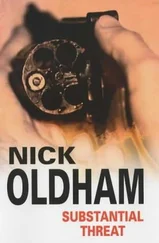You have no idea.
‘I like this house,’ Pechorin went on. ‘You got some architecture here. Where I come from there’s some stuff like this but all the wood and paint is gone. You can go visit but the guide will tell you “here used to be very pretty, now it’s shit,” and leave you to imagine the rest. But it’s full of invalids. You got an old lady down the hall, two lobstermen bleeding on the couch. You are the last British colonial hospital all of a sudden. Is this place still a consulate? That’s going to throw some egg.’ He considered this last, shook his head. ‘Whatever. The tits say you should go back to sleep, get your strength. I’m not to wake you, blahblahblah.’
The Sergeant could feel himself slipping into sleep again. ‘I thought you were arrested,’ he murmured.
Pechorin shrugged. ‘I got unarrested. I tell you another time.’ He hesitated. ‘You keep a secret, Lester?’
‘Yes.’ Lots.
‘I don’t want that you think I’m a fuckhead war profiteer drug pusher, okay? Let’s say I maybe had some orders to do what I did. When a government does something it’s not a crime, is politics. Maybe I fight war on terror. Maybe I do good work, get tip-off. Maybe my job, it’s not completely clear. Okay? Like the CIA in Vietnam. I tell myself I’m sending drugs home to hospitals. Maybe it’s only my boss is a fuckhead war profiteer drug pusher and I’m a stooge.’ He shrugged. ‘I do what is necessary. It’s Mancreu. Makes no difference, anyway.’
It does. It does, it does. It does to Shola, and the others. It does to the dogs. To the boy, it does.
He tried to fix Pechorin with an interrogator’s eye: Are you lying? Is this bullshit? Tell me what you know! But the world was brown and warm and then he was gone again.
By late afternoon he had shaken off the Witch’s insistence that he stay in bed and was walking around, complaining with every movement but convinced he was doing himself good, and she averred between curses that he might be, but that he’d be happier if he didn’t. She had no time to chase him, however, because the sweeper’s hip was broken and she was concerned about clotting. One of the lobstermen had an infected cut which required medicines she could not get without crossing Beauville to Kershaw’s building, and the riot was still going, so she had instead to make her best alternative from plants by boiling them in a pan and supplementing the mix with powders from the medical supplies at Brighton House, which were for the most part out of date.
He couldn’t escape the feeling that all this was his fault, that he could have done more — that while Lester Ferris could never have stood alone in front of the gang and faced them down, he was no longer only Lester Ferris and he had in some sense abandoned his post, at great cost to an old woman and he had no idea how many others. He hoped Inoue was out of it, firmly on the far side of the island. He even hoped Kershaw was okay. He was sure Dirac was.
He barely dared to think about the boy. There were so many things that could be wrong. Perhaps he slept in an abandoned house and it had simply burned around him. Perhaps he had defended a dog, or perhaps his trading association with the Fleet had been viewed as treason. It was all equally possible. A father would go out and find him, risks or no, injuries or not. A real father would have no choice, would feel, surely, the tug in his blood and his bones and the need beyond common sense. He would go house to house. He would find the corpse if he must, the living child if he could, but he would be out there.
And, the voice of experience told him, that man would be an idiot. A noble, short-lived idiot, searching a burning town for a child who knew its alleys and its secrets, who was better suited to it than a clumping parent could ever be. More than likely the would-be rescuer would bring the mob to his child’s door, and they would both burn. Nightmares boiled in his mind’s eye, multiple scenarios of doom and folly, and each one grew more grotesque, more self-defeating.
‘Dude! You got ganked!’
The boy stood in the doorway and stared at him, mightily impressed. ‘You got really messed up! That is. . that is roarsome !’
When merely ‘awesome’ is not enough.
The boy was still going. ‘This is your Bespin! You failed, but you didn’t die, and you totally kept your integrity—’
And then he could not continue because the Sergeant had wrapped him in a vast embrace, painful and absolute, and was having trouble letting go even as panic gripped him that this was absolutely outside their way of being, this absolute and unequivocal hug so full of worry and dismay. He wrenched his arms open and stepped away.
The boy gazed at him, wide-eyed.
And then hesitantly crossed the space between them for a second, half-hug, resting his head against the Sergeant’s shoulder.
‘It is okay,’ he said, his face very sombre and eerily old. ‘I was fine.’ He stayed there for a moment, and then slipped away. ‘By the way, you have mail. The Italian said to bring this to you.’ From his bag, he produced a slim envelope. ‘Said it would help with your investigation. Check it out! Maybe it will tell us how to beat those badmashes on the bikes! I will make tea!’
He scampered away, and the Sergeant found he could breathe, despite his aching ribs, for the first time in a day. He opened the envelope and glanced at the contents, then stopped and stared.
Sergeant –
You have been doing my work for me. It is only fair I do yours. It is busy here, but there is no better time for this. I wish you well.
— A.
Not the bike gang, and nothing about Tigerman or Shola’s death.
The boy’s face stared up at him from the file, his birthday, his given name. His parents.
The Sergeant retreated to the study and closed the door. It was not privacy he needed but calm, a sense of constancy. This was the thing. This was the file. The boy’s file. Everything he had wanted to know was here, and yet reading it all would be cheating, of a kind. He did not have to read it all. He would leave the boy his mysteries. He had read the name at the top, had already forgotten it. Saul? Sullah? Simon? It began with an S. Or possibly M, or X, or J. He could check, but he would not. The boy was the boy, complete in himself. It was idle to give him a name beyond that unless he wanted one. The Sergeant needed only the names of his family, and where to find them.
He began to read. He tried to avoid the detail but it was impossible, the truth was buried in the text, so he had to intrude at least that much. Not a problem. He could forget it afterwards, could wait to have it explained and never let it be known that he knew.
The boy’s father had been a longline fisherman from Malé. He had come to the island after a storm and stayed just long enough to fall in love and father a child. Arno had written in the margin that he thought it really had been love. He must have been out gathering information before the riot, or perhaps the investigative team had simply gone on about their business, backed by a few marines and moving carefully to avoid the mob. They must have worked in worse places; in Somalia, at least, and maybe Kashmir or the West Bank. The young sailor, anyway, had gone back to his ship and headed home to acquaint his family with his intent to marry, and had got caught instead on an outgoing line and drowned. It happened, Arno noted, quite a lot. He knew families at home who had suffered by the same thing.
The Sergeant turned the page, and — seeing what was written there — nodded in a kind of acknowledgement. The boy’s mother was alive, of course. She was not a nun, or a bar fly. She was no one he knew. But he knew of her, as everyone did, and he knew that he had been in some way expecting this.
Читать дальше
Конец ознакомительного отрывка
Купить книгу











